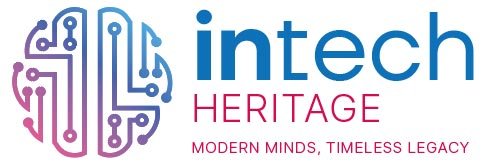Artificial intelligence (AI) is no longer a technology of the future; it is a present-day force transforming industries and redefining what is possible. As leaders, our responsibility extends beyond merely adopting AI for process optimization. We must be the architects of its implementation, ensuring it is done in a way that is fair, transparent, and secure. AI ethics is not a barrier to innovation, but the foundation upon which trust, reputation, and sustainable success are built.
To navigate this complex landscape, it is essential to understand the pillars of responsible AI:
- Bias & Fairness: An AI system is only as unbiased as the data it is trained on. If historical data reflects societal inequalities or past prejudices, the AI will learn and amplify them. Imagine an AI for hiring staff trained on data from the last 20 years. If, during that period, the company predominantly hired men for technical positions, the AI could systematically discriminate against highly qualified female candidates. Moving beyond simply detecting bias to actively pursuing fairness means designing systems that not only avoid discrimination but also promote equity.
- Transparency & Explainability: If an AI makes a crucial decision, such as denying a customer a loan or diagnosing a patient, can you explain why? A “black box” system that provides answers without justification is a legal and reputational risk. Transparency means we can understand and justify the AI’s decisions. This is essential for correcting errors, complying with regulations (like the GDPR’s “right to an explanation”), and, most importantly, earning the trust of the people we serve.
- Privacy: AI models require vast amounts of data to function, posing significant privacy challenges. As leaders, we must ensure that personal data is collected with consent, used for its intended purpose, and rigorously protected. Adopting principles like “privacy by design” is not just good practice; it is an obligation to maintain customer trust and comply with the law.
- Safety & Reliability: An AI system must be robust and secure. This means it must function reliably as intended and be resilient to manipulation. “Adversarial attacks,” for example, can fool AI systems with subtly altered data, which could have disastrous consequences in critical applications like autonomous vehicles or medical diagnostics. Ensuring reliability is about protecting your customers and your company from unforeseen harm.
- Accountability: When an AI system fails, who is responsible? The developer, the company that deploys it, the user? Establishing clear lines of responsibility is crucial. This involves creating governance frameworks, human oversight (“human-in-the-loop”), and mechanisms for redress. Accountability ensures that we are not delegating our ethical responsibilities to an algorithm.
Ultimately, ethical AI is an undeniable competitive advantage. It protects your company’s most valuable asset: its brand reputation. When customers, employees, and regulators know you use technology responsibly, their trust is strengthened. This trust translates into loyalty, greater retention, and a positive brand image in an increasingly conscious marketplace.
The ethical implementation of AI is one of our top priorities. If you share this vision and want to discuss how to ensure your projects are responsible, send me a direct message.

